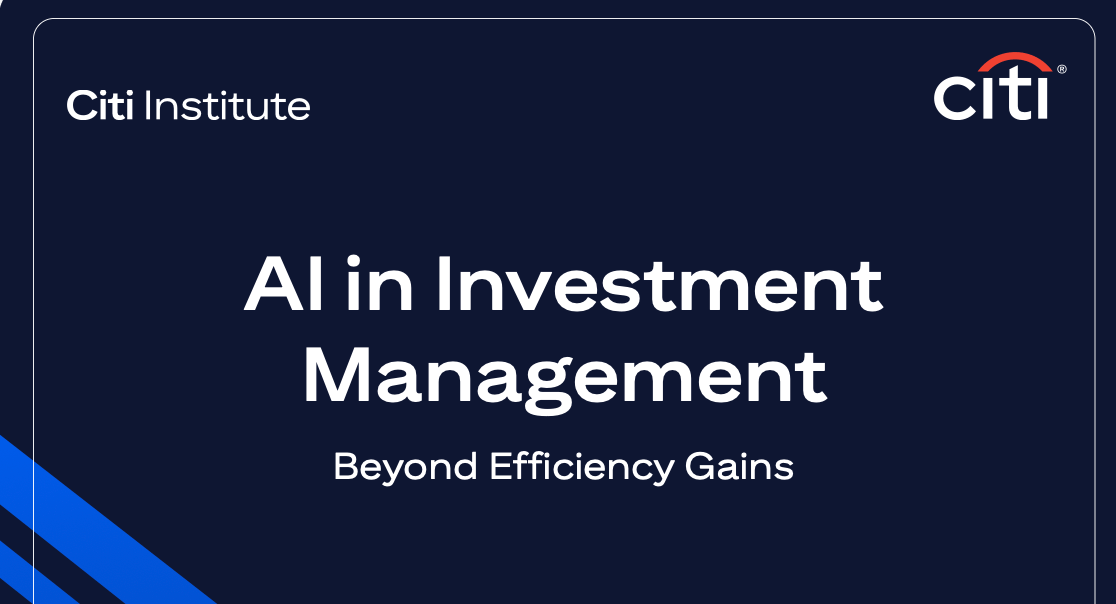Citi’s AI Outlook for Wall Street
Hey, it’s Matt. This week on AI Street:
💡 Citi: AI is a ‘Seismic Shift’ for Finance
🧰 Menlo Ventures Backs AI Startup For PE
🛒 OpenAI Buys Personal Finance App Roi
🏦 AI’s Muted Impact on Bank Jobs
ADOPTION
Citi: AI Evolving From Cutting Costs to Picking Investments
Citi has new research out this month on how AI is moving beyond efficiency gains in financial services to steering investment decisions.
The latest report from Citi’s data and markets research team builds on its June 2024 study of more than 40 investment executives. It updates those interviews with new conversations and input from Citi and Microsoft’s AI teams.
For those of you who read AI Street regularly, some of these use cases will sound familiar: summarization, transcription, sentiment analysis. Here’s a breakdown:
For Fundamental Investors:
Processing 30+ analyst reports simultaneously
Behavioral analysis of management communications for alpha generation
Forensic accounting and anomaly detection
Reduction in research synthesis …



